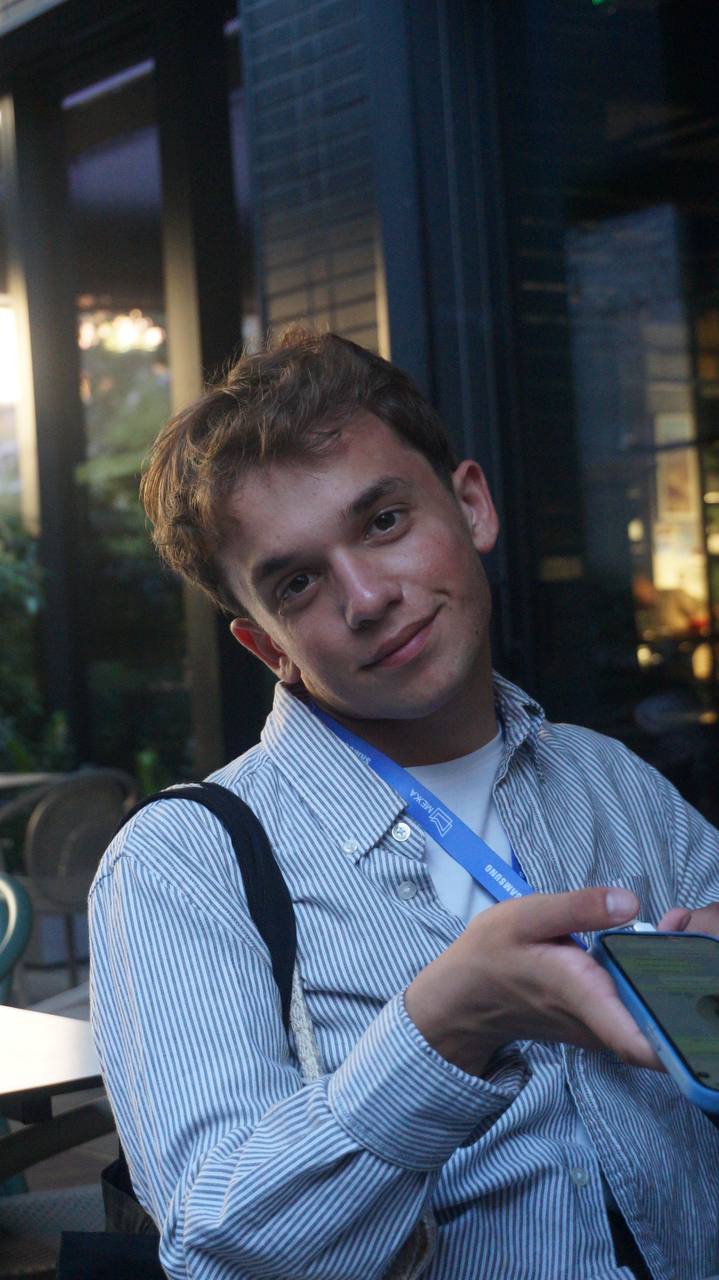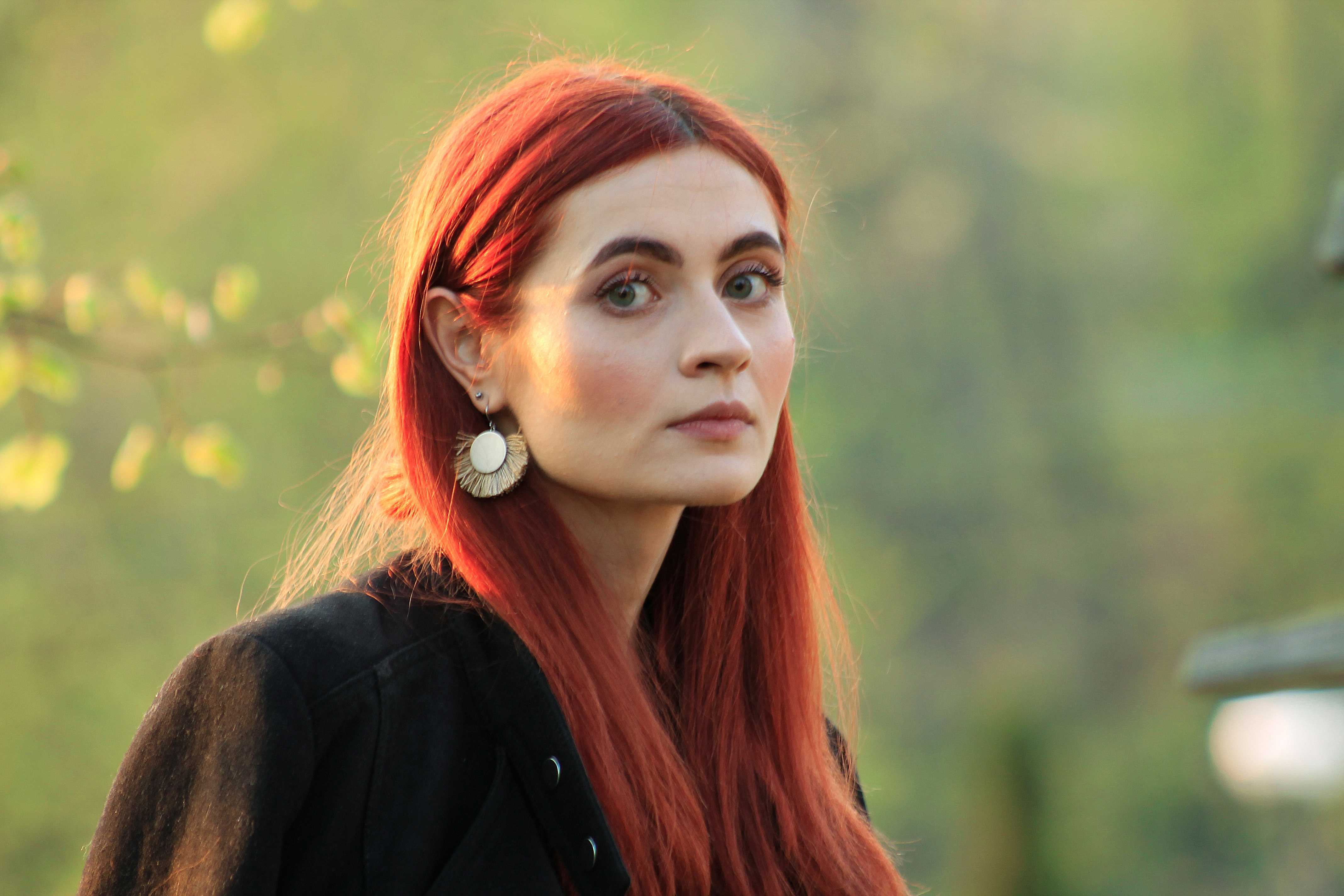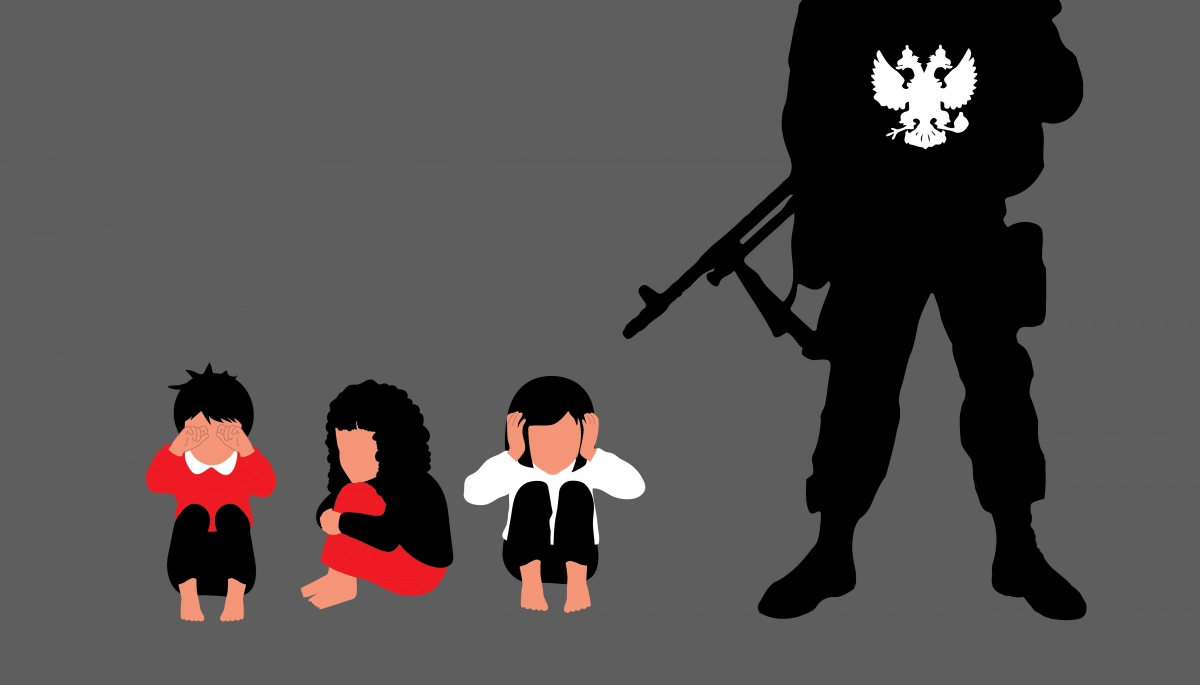

Українською читайте тут.
Since the start of the full-scale invasion, Russia has officially deported or forcibly relocated 19,546 Ukrainian children. However, the exact numbers are unknown due to active hostilities. Cases of actual Ukrainian abductions may be much higher. Overall, the issue approximates around 200-300 thousand undocumented cases. Those children who managed to return to the territory of Ukraine tell about abuse with threats to "send them to a psych ward". Moreover, they were subjected to systematic physical violence. They were forced to sing the Russian national anthem, wear ribbons of Saint George (Georgiyevskaya lentochka), were forbidden to say "Glory to Ukraine!" and were brought up in the spirit of hatred for their own state. In the territories temporarily occupied by Russia and already liberated by Ukraine, local parents were offered to send their children to "sanatoriums" and "recreation centers" both in Russia and in the annexed Crimea. They were promised entertainment and fun for several weeks. Instead, little Ukrainians were or still are in inhumane conditions, not allowed to have contact with their closest relatives. Their national identity is being erased. The children are forcibly detained, and the parents are told that "we will not return them until it is safe." The Russian troops themselves created the danger. There are many stories in which natives traveled hundreds of kilometers alone or with the support of volunteer organizations or specialized ministries to bring back their daughter or son from Russia. Cases of children's return are not systematic; Russia prevents and resorts to constant interrogations of their relatives. Russians do everything to slow down the process of Ukrainian children's return back home.
In addition, Russian authorities now can recognize boys and girls as children "without parental care " and try to place them in new Russian families. Moscow even recognizes as orphans those children who have living parents – if they do not have time or are not able to reach their children. The requirements for potential Russian adoptive families have become softer, and therefore, the search for children for real guardians has become extremely difficult. The Kremlin hides its criminal actions with a contrived "evacuation" and convinces that they are "rescuing" and "giving shelter" to Ukrainian children and not taking Ukrainians to remote regions and assimilating them. Children in such families are also brought up with a desire for revenge against Ukraine; they immerse themselves in the Russian context and absorb Russian propaganda daily. Agitational propaganda wants to convince them that Ukraine is an enemy and Russia, an actual terrorist state, is a savior. After all, these Ukrainian children are convinced that they are allegedly left alone and no one, except for Putin, will save them. Why is Russia doing this — and why is it, not only a war crime, but a planned genocidal policy?
On March 17, 2023, the International Criminal Court (ICC) issued an arrest warrant for the dictator Putin and the so-called Commissioner for Children's Rights Maria Lvova-Belova. Since then, both involved in the case have been charged with deportation and illegal transfer of Ukrainian children. If Putin and Lvova-Belova go to countries that are members of the ICC and have ratified the Rome Statute, they should be arrested and brought to court. Currently, there are 123 such countries. In the meantime, Ukraine has not ratified the document yet.
So far, the ICC warrant has not allowed Putin and Lvova-Belova to be brought to justice and the Ukrainian children to be returned to Ukraine. They are equally separated from their families, in foster families or, at the very least, "being treated" and "recovering". After all, not only these two officials are involved in the crime, but the entire vertical of the Russian (and not only) government. Legal analyst of the Human Rights Center "Zmina" Onysia Synyuk explains that many more people are involved in the deportation and, accordingly, the genocide: these are also the leaders of the occupational administrations, "who facilitate the transfer and relocation of Ukrainian children to the Russian families."
Among other things, Onysia Synyuk stated that Russia is constantly trying to simplify its [legal] procedures so that high school children or even their parents from the temporarily occupied [by Russia] territories get to the terrorist country with the status of Russian citizens. She cited the example of a 2019 legislative initiative that made it easier for residents of the occupied regions of Donetsk and Luhansk regions to obtain citizenship. In the conditions of a full-scale invasion, the initiative has been spread to orphans or children deprived of parental care from all the [Ukrainian] territories occupied at that time. In 2023, the Russian State Duma allowed minor foreigners to acquire the right to obtain citizenship if their adoptive parents have Russian citizenship. Also, all foreign children placed in residential institutions in Russia have the right to obtain a Russian passport. By doing so, the Kremlin leaves no choice and forcibly gives out passports to Ukrainian children who are in orphanages.
Darya Herasymchuk, the adviser to the President of Ukraine on children's rights, in an interview with the Ukrainian agency "Interfax", stated that after deportation, Ukrainian children are immediately given Russian citizenship, they are constantly moved or relocated to be raised by Russian families, changing their names. There were also cases when children were transferred from Ukraine's occupied territories and relocated to Russia for adoption, while the opinion of the child was not taken into account. In some regions, even Russian families are forced to adopt a Ukrainian child.
"We have recorded facts of when Russians who want to adopt a Russian child are not given the right to do so unless they have a Ukrainian child. It means that they are forced to: "Take one Ukrainian child and another Russian child." Such cases happen coercively very often," Herasymchuk said.
The desire to hand over the Ukrainian child to the Russian family as soon as possible is due, among other things, to the need to save money. Thus, the Russian authorities want to spend less money on their maintenance because handing over the kid to the family is supposedly much more profitable than keeping a child in a specific institution. When the local government is busy with corruption and the sanatoriums' management leases its metal equipment from the food block, processing it as a write-off, then it cannot properly feed and take care of deported Ukrainian children. Specifically, in June 2023, Radio Liberty investigative journalists wrote that when a child kidnapped from Ukraine is placed with Russian families, the authorities pay [this family] a one-time = cash assistance, the amount of which varies depending on the region but is approximately 23,000 rubles, which is less than $300. Although the Commissioner for Human Rights, Dmytro Lubinets, says that for the adoption of Ukrainians, Russian families receive щерук amounts - from 28 to 156 thousand rubles per month.
Darya Herasymchuk singled out at least five scenarios of Ukrainian children's abduction. In general, children can be moved to the territory of Russia after their parents’ murder, after separation from relatives during the so-called filtering, and for the sake of "evacuation" to safer areas; children are relocated from the official orphan institutions or separated from their families under the guise of "health rehabilitation". "It is a clearly planned policy. Their actions are not chaotic," says the President’s adviser on children's rights.
At the same time, there is no single mechanism for the return of these children, and there are no negotiations with Russia on this issue either. First of all, Moscow does not recognize minor Ukrainians as "detained, deported or forcibly displaced" since Russia considers it their [children’s] "salvation".
What is the path of Ukrainian children before getting into Russian hands? Radio Liberty journalists investigated publications in the Russian media, social networks of local boarding schools, orphanages, and Russian camps. They found out that children from the temporarily occupied territories were deported to at least 88 Russian institutions.
On August 30, 2023, the Regional Center for Human Rights published a map of Russian buildings where Ukrainian children are being held. They managed to find more than 40 such institutions. Some are in remote regions, such as the Republic of Buryatia, Altai, and Vladivostok.
In the first months of the occupation, children were taken to the occupied parts of the Donetsk region, where they underwent medical examinations. After that, they were sent to Rostov Oblast, Krasnodar Territory, and the annexed Crimea — to children's camps, sanatoriums, i.e., centers of temporary stay. One of the main transit zones was the "Romashka" sanatorium in the Rostov region. Radio Liberty investigators managed to talk to a fifteen-year-old Ukrainian teenage boy who came here because her home, a temporarily occupied territory, was "under massive shelling". He said that Ukrainian children were accommodated in the freezing rooms. In some rooms, the management installed heaters, but this was not enough. Also, a local activist characterized the "Romashka’s" conditions and said that those were "shit", mainly due to the lack of proper nutrition and protection. After the visit to the sanatorium, the so-called commission of Russian social services saw the absence of appropriate conditions.
After temporary relocation points, like "Romashka", children were transported from one institution to another. Later, they were sent to boarding schools, orphanages, or rehabilitation centers deeper in Russia or to foster families. Darya Herasymchuk describes the tactics of constant relocation as the Kremlin’s need to confuse Ukrainian parents because if the Ukrainian side finds out where the child is, they can immediately relocate him, and so on.
In our last year's study, "Revenge for the Children of Donbas", Detector Media analyzed the main tactics of Russian agitational propaganda regarding Moscow's denial of the fact of Ukrainian children's deportation. "Children of Donbas", according to Russian propaganda, are all people under the age of 18 who live in the occupied or already liberated parts of Luhansk, Donetsk, Kherson, Zaporizhzhya, and Kharkiv regions and who allegedly "suffered from the actions of the Kyiv regime". At the same time, Russia "came to liberate them."
"Neo-Nazis take from Donbas families not only their blood but also the most valuable thing they have – their families’ future" (quote from the anonymous Telegram channel – Detector Media). Russians also stated that all Ukrainian children who are in the territories temporarily occupied by Russia already belong to them and fall under the jurisdiction of Russia. That is, they must obtain Russian citizenship, go to Russian schools, etc.
To document Russian crimes against Ukrainian children, Ukrainians created a documentary film, "Uprooted" ("Children for Putin"). It discussed the mechanism of forcible deportation of Ukrainian children to Russia and [Ukraine’s] temporarily occupied territories. The Kyiv Independent publication’s team created the film; the project’s authors are journalist Olesya Bida and director Vitaliy Havura. The documentary tells the stories of children who were abducted from Mariupol and a group of children (the so-called "group 31") who were illegally taken to Russia in May 2022 and are still there. Among them was Pylyp Holovnya, a boy whom the Commissioner for Children's Rights under the President of Russia, Maria Lvova-Belova, "took under guardianship" into her family.
The rescue story of the two Ukrainian girls deported to Russia was told by the authors of the "Escape from the Russians" film to the "Investigation. Info".
Another film was presented by the Hromadske investigators a few days ago — the film "Guide to Hell" covers the story of the Ukrainian boy Mykyta Bilanchuk, who, at the time of the occupation of part of the Kherson region by Russia, was being held in the Oleshki orphan school. His grandmother returned from Poland to pick him up. However, she had to overcome many obstacles to pick up her grandson, in particular, obtain Russian citizenship and meet with Lvova-Belova.
Maria Lvova-Belova’s public image is based on the fact that she allegedly helps children with disabilities and orphans and is a mother of many children herself. She gave birth to 5 children, adopted four children in 2012-2013, and is the guardian of 13 children with disabilities, which she told publically in 2021. She not only facilitated the deportation of Ukrainian children but also promoted their adoption and told lies about their rescue from shelling. After the full-scale invasion, she adopted a 17-year-old boy, Pylyp Holovnya, who was forcibly relocated from occupied Mariupol. Instead, Russian propagandists created the story of an orphan whom the Russians and Lvova-Belova supposedly saved. Having kidnapped a child from the Donetsk region, Lvova-Belova talks about the issues of the "children of Donbas". As she told Vladimir Putin: "Now I know what it's like to be the mother of a child from Donbas. "
Russian propaganda is consistently engaged in justifying the Russian state’s crimes. According to the aggressor country’s propagandists, Russians are trying to "save", "take care of", and "help". Moreover, Russians label all these crimes as "evacuation and rehabilitation". With similar wording, Russia changes the terms and calls forced deportation — a "rescue." Instead, children do not return and may go missing. For example, the consequences of one of these "trips to the children’s camp" were described in Radio Liberty’s publication about the Kherson region resident, whose child went to Crimea to a "children's camp" free of cost, supposedly to be safe from constant shelling. As a result, the child was held there and could not return until the parents themselves went to Crimea together with representatives of volunteer organizations.
Russia uses the "saving the children" disinformation to raise the morale of its army. After all, it should encourage Russian soldiers to fight for the children who became Ukrainians’ "victims". In this way, they promote adoption by allegedly "saving" children from terrible "punishers" [Ukrainians]. Speculating on this topic, the Kremlin does not mention the Ukrainian children who suffered from Russia's actions. As of October 7, 2023, according to juvenile prosecutors, 506 Ukrainian children died, and more than 1,130 were injured of various degrees of severity as a result of Russia's criminal actions.
Detention of children on the territory of Russia leads to total Russification of Ukrainian children, denial of their nationality, and planting in them Russian propaganda’s classic theses – Ukraine is full of Nazism, the Ukrainian Armed Forces were shelling you, you should not go back there, because Russia is a "better" option. Russians influence the consciousness and psyche of young Ukrainian girls and boys. Even after spending several months in Russia, children become Kremlin’s mental hostages and return with psychological trauma. Darya Herasymchuk told the story of the return of [Ukrainian] military personnel’s daughter. According to her, the child became Russified literally in half a year, and the five-year-old girl still constantly asks her mom and dad: "Do you love me? Are you sure you love me? I doubt it."
The President’s adviser for children’s rights explains that teenagers are forced to feel guilty because they are Ukrainians, that they were in this territory and left, and that the war "started because of them". They return with "severe psychological injuries." Yet, this is the information available from the children who managed to return, and there are thousands of young Ukrainians who are currently under the influence of Russia and are becoming enemies of their own state.
On April 27, 2023, the Parliamentary Assembly of the Council of Europe session in Strasbourg adopted a resolution that recognized that the deportation of Ukrainian children by Russia contains signs of genocide. It is the first recognition of this fact at the high-level international organization that unites European states. Four months later, Volodymyr Zelenskyy approved an information campaign on the territory of Russia for the return of deported Ukrainian children: "If you know it – say it!". It should motivate people living in Russia to oppose the forced deportation of Ukrainian children. The Ukrainian side is making efforts to return the children home.
Every case of abduction and attempt to return a child turns into a lottery ticket. There is no diplomacy language for Russia. According to the latest data, Ukraine returned about 386 children out of 19,546 deported. Moreover, these are only those cases that were officially recorded - when the father, legal guardian or witness of the child's deportation reported it to the National Information Bureau of Ukraine. The sooner we return Ukrainian children to their homes, the less painful their reintegration into Ukrainian society will be, and Russia will be condemned for its actions. After all, it is Russia’s planned genocidal policy against the Ukrainian people.
Detector Media will soon publish our investigation on deported children, in which we discuss how Russian agitational propaganda speculates on the topic of deportation, tries to whitewash itself, and consistently denies its crimes. Read our previous research on national minorities, religion, people from (de)occupied territories, the LGBTQIA community, and women. Read more about the deportation of Ukrainian children in Detector Media’s analyses here, here, and here.
Image credits: Detector Media


